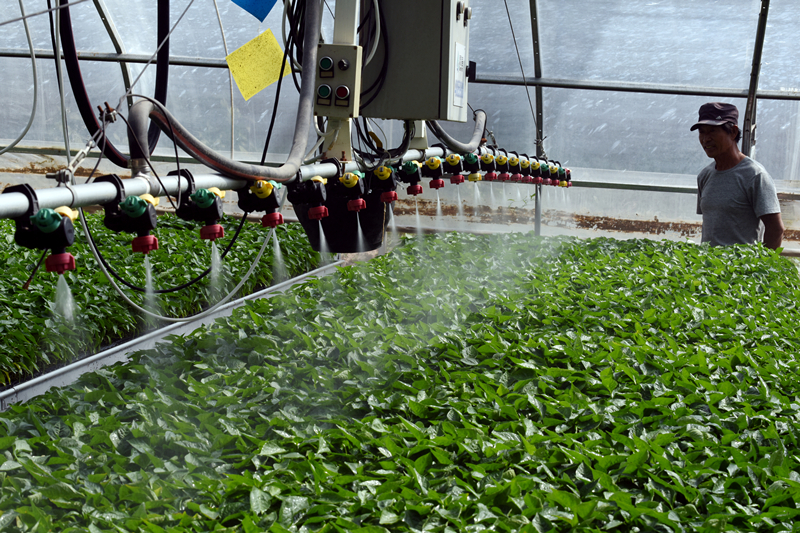Irrigation project to help wealth flow to farmers


Living standards in mountainous counties in Northwest China are set to rise as a result of infrastructure improvements. Yao Yuxin reports from Jainca county, Qinghai.
Like most people in the area round the Yellow River Valley in Qinghai province, Jamyang Gyatso, a 56-year-old farmer from the Tibetan ethnic group, lets his fields lie fallow for seven months of the year.
With only 300 to 400 millimeters of rainfall annually and evaporation exceeding 1,300 mm, local farmers have long battled an acute water shortage.
Although the Yellow River flows through the region, its level is well below that of the surrounding farmland so the locals use electric pumps to raise the water they need for drinking and irrigation.
The cost of powering the pumps on Gyatso's 4,000 square meters of farmland is about 900 yuan ($132) a year - a significant amount given that his annual income from farming is about 6,000 yuan before the cost of fertilizers, seeds and labor are deducted.
"That's just enough to feed us," he said, referring to his family of nine in Gabu, a village in Jainca county. The family's main income comes from Gyatso's three sons, who work in a nearby town, and the fungi he and other members of the family collect to sell.
However, the lack of water and the old, small-scale pumping stations will soon be history because they will be replaced by a more efficient irrigation system which is currently under construction.
The new system - called the Qinghai Rural Water Management Project - will use water from two reservoirs in the surrounding mountains, so conduits are being built that will allow gravity to carry it to the farmland.
The project was approved by the provincial government in 2006 and work started five years later to build irrigation channels in three counties in the Yellow River Valley - the Hualong Hui, Jainca and Xunhua Salar autonomous counties.
The work is due to be completed on Sept 30, having received total investment of about 1.58 billion yuan.
Inadequate supply
Li Zhihong, an agricultural expert on the project, said the lack of water means the land is "little better than a desert".
A field of wheat usually needs to be watered five to seven times before it is fully ripe, but the water shortage in the valley means farmers usually irrigate their crops just twice during the growing season, resulting in low yields.
In addition, the lack of water can lead to conflict among farmers. The high strain on water resources means Gabu is allocated just three hours of water five to seven times a year, which is barely enough to irrigate the 667 sq m of farmland in the village (equal to the traditional Chinese measurement of 1 mu, which is used in the region), according to Ji Jincai, who has been head of Gabu for the past four years.
- Geminid meteor shower seen across China
- Sustainable agriculture in focus at Hainan forum
- Road accident in East China kills 4
- Health Bureau: Free Chinese medicine services for Tai Po fire victims
- Satellite launch marks a new milestone in UAE-China cooperation
- HK fire: 4,510 residents in shelters as support fund reaches HK$3.6b




































